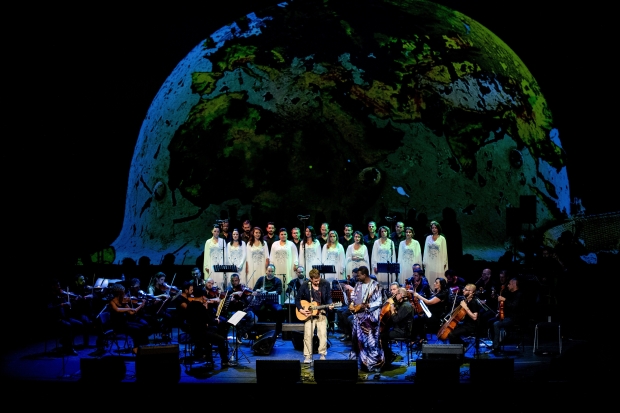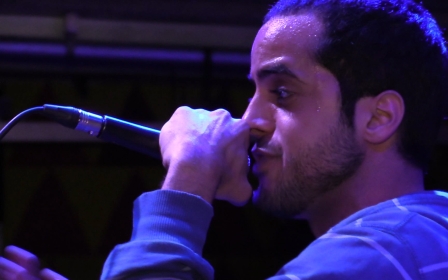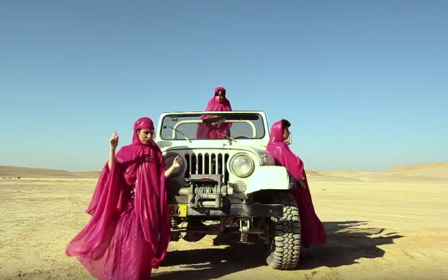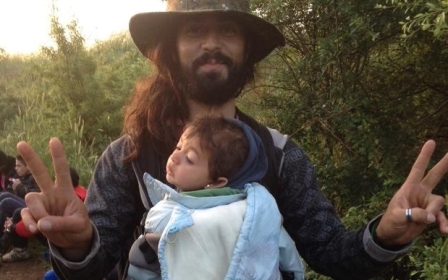Syrian musicians unite for first time since war to kick-start Glastonbury Festival
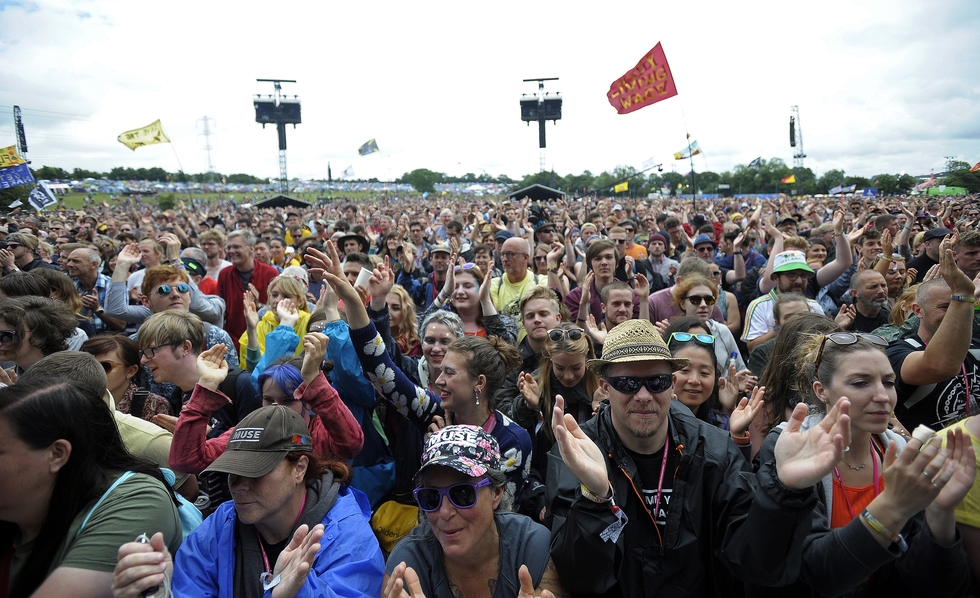
For many, Syria has become synonymous with violence, thanks to the disastrous civil war that has plagued the nation for the last five years. Syrians find themselves all too often depicted as either victims or aggressors, but rarely as anything in between. With this negative backdrop in mind, the UK's Glastonbury Festival, one of the largest music festivals in the world, kicked off its Friday night this year with a rare positive spot for Syrians: performing professionally on the main stage.
Blur and Gorrilaz frontman Damon Albarn said of his motivation for reuniting members of the orchestra, who haven’t played together since the war started: “We’re so used to seeing Syria through the prism of news, which is entirely a negative thing. This concert will give a completely different perspective. It’s a truly miraculous sound they create.”
The orchestra’s conductor, Issam Rafea, who could not attend because of visa restrictions, conveyed the importance of unity, which is central to the group's performance.
“The fabric of Syrian society has been torn apart as a result of the conflict. At this performance, there will be people representing both sides of the argument... But all are in agreement that we want it to end.”
Damascus rapper and long-time Albarn collaborator Eslam Jawaad - famed for introducing Albarn to Syrian music and convincing him to perform in Syria with musicians there - told MEE: “We all have differences, it would be weird if we didn’t. Look at you [Britain] today, with the referendum. But the point is: have differences, debates, but ultimately work through them together.”
Albarn first played with Syrian conductor Rafea and the Syrian National Orchestra for Arab Music at the Damascus Opera House in 2008, later working with Rafea and members of the orchestra when they appeared on the Gorillaz track White Flag. The musicians, together with Rafea, then joined Gorillaz on their 2010 Escape to Plastic Beach World Tour, which included shows at the 11th century Citadel in Damascus, as well as dates in Lebanon and across Europe and North America.
Reuniting the Syrian musicians, some without passports and displaced to 23 counties, was a logistical nightmare. “Visas were issued at the last minute, I mean, like the day before the show,” Jawaad said. But they managed to pull it off, and Glastonbury was all the better for it.
The orchestra brought the best of Syria to the muddied Somerset fields. The elegant ensemble of strings, soloists, percussion and full choir dressed in white dominated the stage, accompanying a variety of singers and rappers from around the world. The performers were led by Albarn, who let the musicians shine, bar two notable appearances.
There was a magical quality to the orchestra's mass united front, aided by an infectious blend of traditional and modern music that captured the early morning imagination of the Glastonbury audience. The festival awoke to the sound of Syria: the sound of hope.
Tunisian jazz and Sufi music singer Mounir Troudi had the crowd in the palm of his hand with an entertaining performance. Next, Syrian singer Faia Younan serenaded them, followed by Senegalese drummer Seckou Keita and Mali-born musician Bassekou Kouyate. Then Noura Mint Seymali, clad in a stunning floral hijab, stunned spectators with desert blues from Mauritania.
Albarn took to the stage for one last time to declare the importance of hope embodied in the whole performance. And after the orchestra finished its final piece, all the performers joined on stage, holding hands, to take a well-deserved bow to rapturous applause. A worthy ending to an epic musical performance.
Their performance may not end the war, but as they continue their world tour - with the next stop at London’s South Bank - they might just help divert the narrative from negativity to one of cultural bridge-building.
Malikah told MEE that she hopes art and music can be a way for people to express political grievances, especially in counties ravaged by war and sectarian conflicts: “Maybe, someone will be thinking of going and doing something stupid," she said. "If they can express their frustration and anger through music and art, maybe they will decide to not do that, and they won’t resort to violence.”
Jawaad and Malikah agreed that an aim of the performance was to show Britain and the world that: “We are people, just like you.”
New MEE newsletter: Jerusalem Dispatch
Sign up to get the latest insights and analysis on Israel-Palestine, alongside Turkey Unpacked and other MEE newsletters
Middle East Eye delivers independent and unrivalled coverage and analysis of the Middle East, North Africa and beyond. To learn more about republishing this content and the associated fees, please fill out this form. More about MEE can be found here.



